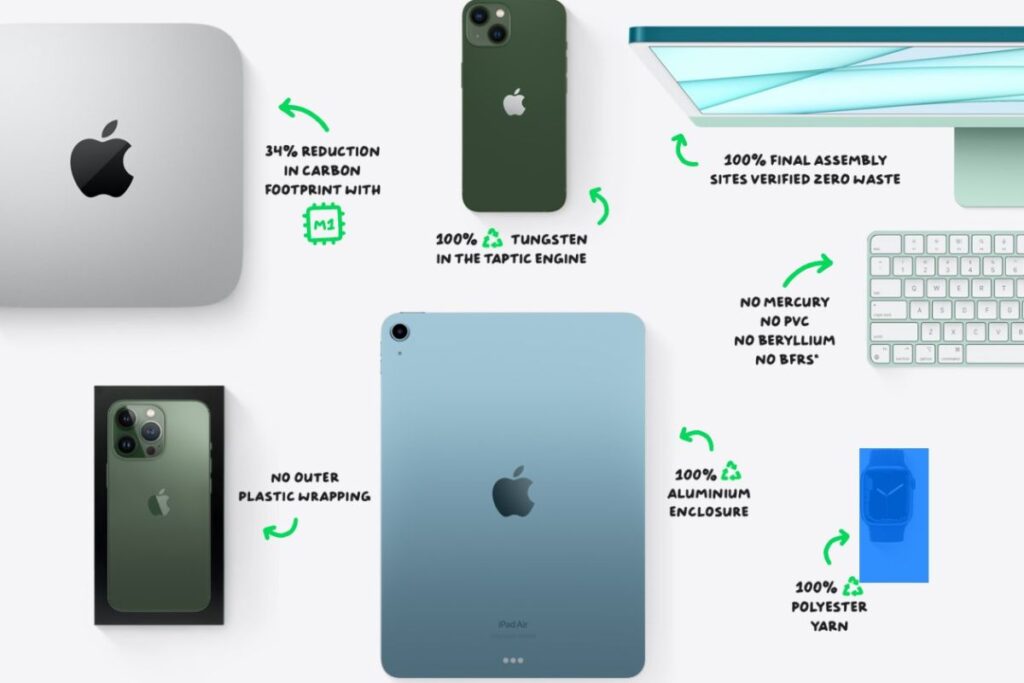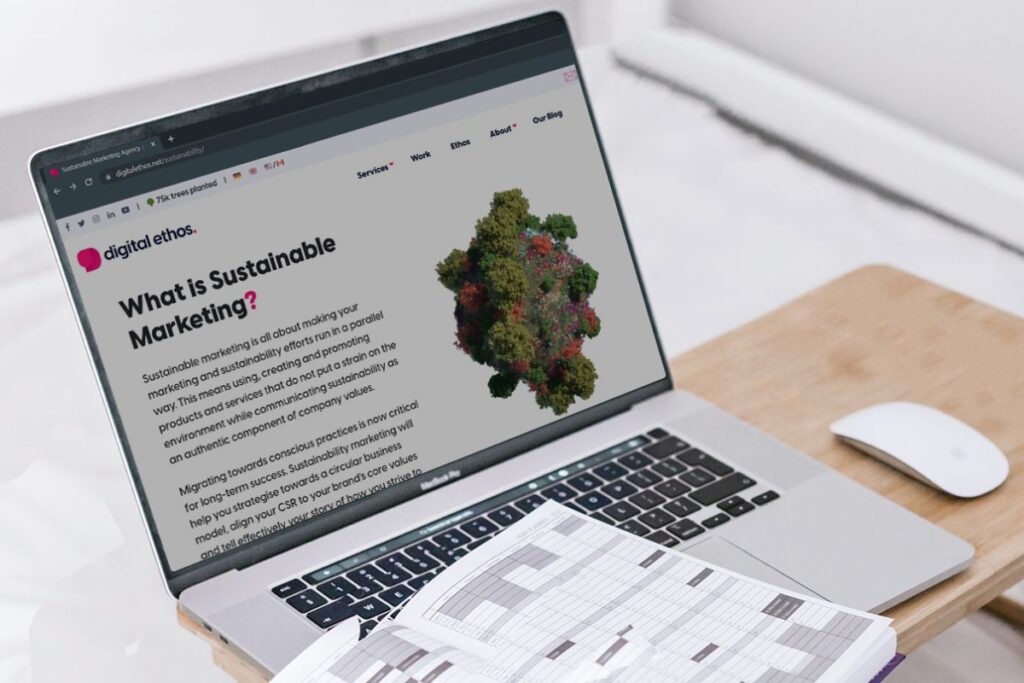According to the Office of National Statistics three-quarters of adults in Great Britain worry about climate change. As UK consumers grow more and more eco-conscious, how can brands incorporate sustainability into their marketing plans to win them over?

The rise of eco-conscious consumers
In 2022, a survey by Deloitte revealed that 40% of consumers chose brands that have environmentally sustainable practices/ values. This shift in the importance of environmental concerns to consumers could see companies struggle if they do not embrace sustainability. Even those who have done so have mostly focused on risk management rather than on how their approach to sustainable development concerns may help them produce greater value.
What matters to eco-conscious consumers
According to Deloitte’s annual survey into consumer attitudes and behaviours around sustainability, there has been a significant increase in the number of people who have adopted a more sustainable lifestyle in the last 12 months. More consumers are taking a proactive approach to lead a more sustainable lifestyle. They do so by choosing brands with sustainable practices and values or by discontinuing purchases of specific products due to concerns about the brand’s stand on sustainability. Most importantly, according to the survey consumers tend to trust companies with a strong public perception and record on climate change and sustainability.
What does it mean to your brand?
It is more crucial than ever to understand the underlying determinants of reputation and what businesses should be doing to attain the long-term aim of sustainable strategic credibility. In doing so, brands can reap the rewards of a strong reputation.
It is essential for brands to reach conscious consumers and shift the perception of sustainability. No matter where your brand falls on the spectrum, understanding how you can position yourself sustainably is key to winning with this group. This is where sustainable marketing comes into play.

What is sustainable marketing?
Simply put, sustainable marketing is the promotion of socially responsible products, services, and behaviours while showing support generally for the cause. If you’ve ever spent a little bit more on a product because you know it was locally sourced, organic or 100% recyclable, you’ve experienced sustainable marketing.
Businesses can use sustainability marketing to focus on a specific product or service, a time-sensitive event or utilise it as their USP to separate them from the crowd. It isn’t a quick win, nor something that can just be implemented and forgotten. It’s a fundamental shift in focus. While eco-friendly companies are naturally aligned on sustainable marketing strategies, brands that aren’t founded on sustainability can still integrate sustainable concepts into their approach.
There are great examples of non- eco focused businesses doing just that. Apple’s Amplifying Your Eco Voice which utilised emojis to support their pledge to sustainability, Lego and their commitment to make all LEGO® bricks sustainably made by 2030 and the Body Shop who introduced the #BringBackOurBottles campaign to incentivise their customers to return their empties in exchange for a redeemable discount voucher. We at DIgital Ethos are also committed to change and sustainability, pledging to plan 50,000 trees in the year and becoming B-corp Certified.
How does sustainable marketing benefit your brand?
Sustainable marketing helps you stand out from traditional marketing. By showing consumers your values and your efforts towards a better world, your business can earn their trust and loyalty, making your brand competitive and future-proofed. Sustainable marketing can attain significant benefits including:
- Attracting customers and building a strong reputation
- Gaining more partners who look for highly reputable and responsible companies
- Becoming more resource-efficient
- Engaging employees and attracting new passionate staff members who want to change the world

How to move from ambition to action in 4 key steps
Wherever you might be on your sustainability journey, you need to have a strategic sustainable marketing framework with clearly defined targets to reduce your environmental footprint, create an impact, and communicate results. If done effectively, you will be able to guide resources, engage stakeholders and drive performance.
Identify what matters and work towards a bigger purpose
Sustainability changes require brands to assess themselves beyond their bottom line. Identify worthy causes that symbolise both your target audience and your brand, and think about how your strategy can help influence the wider cause and serve a bigger purpose. By having a clear social mission that defines your message and eclipses the products and services you offer, you will have a solid foundation for your marketing strategy.
Build your sustainable messaging
Now that you have chosen your sustainable unique selling proposition, you need to build authentic messaging around it. While it might be tempting to start using buzzwords and exaggerate your impact and activities, you should steer clear as it will be counterproductive. Your messages and your “brand story” should be based on facts and evidence. Consumers value transparency and will only follow the companies that exhibit dedication and provide social proof.
Engage with your audience
The goal of sustainable marketing is to nurture consumers throughout their entire buying cycle and stay in touch with their needs. Educate your consumers, stay connected through social media and continue this post-purchase to ensure they stay engaged with your brand’s mission. To maximise your brand visibility, you can also partner with organisations from suppliers to Non-governmental organisations that align with your values. Always approach sustainability with a broad perspective and ensure all your actions reflect your mission.
Avoid greenwashing
Too often, brands focus on gaining immediate returns and might be tempted into greenwashing activities since building a sustainable brand and gaining loyalty come at a cost. However, sustainability marketing is all about building long-term value, so you need to make sure that you don’t jeopardise trust by making false claims. Consumers understand the challenges, so sharing how you plan to ameliorate your operations or changes would be appreciated and supported.
It might be intimidating if you’re new to the realm of sustainable marketing, but when it comes to sustainability, every small step matters. As a certified B Corporation with extensive experience in building sustainable marketing strategies for UK’s leading brands, we are able to support our clients and help them build their reputation on their sustainability efforts. Contact us today, and we’ll help you meet our generation’s greatest challenge.

